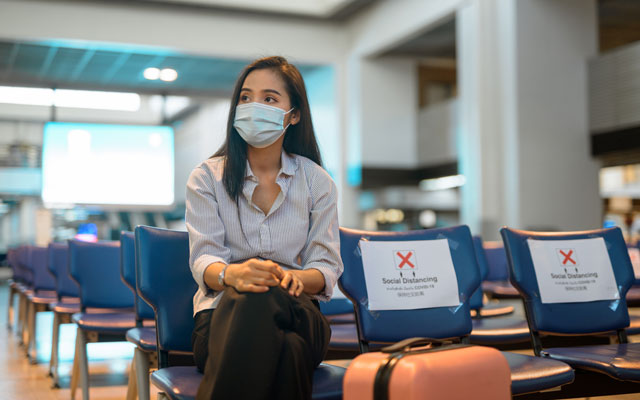Todd Handcock, president Asia Pacific, Collinson, explains why it is vital that when business travel gets back into full swing, organisations in Asia Pacific need to ensure business opportunities aren’t missed, and that employees feel safe and protected while moving about
Since the Covid-19 outbreak, virtual work has been necessary to conduct effective business. However, with travel bubbles opening and Covid-19 testing, companies are preparing for the gradual resumption of business travel. For some organisations, it’s already arrived – either domestically, or through bilateral agreements that enable essential business to be conducted abroad, in person.
Now is the time to review existing travel risk management solutions and ensure they remain fit for purpose in a Covid-19 world; so that business opportunities are not missed and employees feel protected. Here are seven key factors to address:

1. A Moving Threshold for Essential Travel
Travel policies must be continually reviewed to align with the constantly changing landscape of Covid-19 safety risks, travel restrictions and border closures.
As we’ve seen from recent travel bubble openings and poppings, things can change quickly. This moving threshold for essential travel necessitates multiple approval points and multiple layers of risk assessment; transforming the question of essential travel from a permission-seeking process, into one where individual traveller needs and wellbeing are central.
2. Individual-based Risk Assessments
Particularly during Covid-19, businesses must understand individual risk profiles to determine travel authorisation and provide tailored support. This includes physical conditions like asthma, as well as mental health needs.
An additional challenge is to comprehend employee health risks without violating workplace privacy law; explaining why many companies turn to an independent medical assistance provider.
3. Robust Scenario Planning
With the strong potential for unexpected airspace and border closures, businesses can’t solely evaluate data at the moment of travel authorisation. Instead, they must continually track the situation; managing large amounts of intelligence to understand what’s happening at any given moment, and with absolute clarity on roles and responsibilities to ensure nothing falls through the cracks. Additionally, companies must be agile enough to quickly adapt plans real-time, as conditions change.
4. Safety at Every Touchpoint
The Covid-19 pandemic has revealed the need for intelligence across the entire supply chain of the journey. Travellers need to know that they are protected at every step – from airline, to taxi service, to hotel and beyond. Companies have an increased duty of care to demonstrate that they are continually reviewing all touchpoints; including the collection of post-trip feedback.
5. Outsourcing Travel Risk Management to the Experts
As managing corporate travel becomes ever more complex in light of Covid-19, in-house travel managers and security directors are asking for more resources and support. Many of these people don’t have experience with complex medical scenarios – certainly not an unprecedented global pandemic.
We can expect to see more outsourcing to a Travel Risk Management (TRM) provider that offers security and in-house medical expertise to support corporate travel needs in a comprehensive way, or to take on one or two critical elements.
6. A “Carrot” Approach to Compliance
Amid Covid-19, compliance is critical to protect employees. Taking a “carrot” rather than a “stick” approach can be particularly useful – encouraging travelling employees to book in-channel by offering associated travel benefits.
Premium lounge access, for example, is now even more in demand as lounges offer a well-maintained place away from the crowds. Access to a medical helpline is another “carrot” benefit, giving employees 24/7 help at their fingertips, regardless of their location.
7. Clear Communication
A Collinson survey conducted before Covid-19 found that while 50 per cent of employers have invested in medical and security assistance, 51 per cent of employees are unsure of what it offers. Now is a critical time to communicate what assistance is available, how to access it, and what’s been updated. Businesses must demonstrate their commitment to duty of care, while also instilling confidence in employees about safe travelling.
Companies that get a head start on implementing the right travel risk management strategy will be best positioned to enable the safe and confident restart of business travel – giving them assurances that their people are protected, and a role in boosting the broader travel recovery.
 Todd Handcock is president Asia Pacific at Collinson, a provider of traveller experiences including medical and security assistance, and travel medical services.
Todd Handcock is president Asia Pacific at Collinson, a provider of traveller experiences including medical and security assistance, and travel medical services.
He has over 25 years’ experience in managing complex businesses, supporting regional and global travel and hospitality, banking and retail clients.
Prior to joining Collinson, Handcock held senior leadership roles with Kognitiv Corporation, Williams Lea Tag and BT Global Services.





















